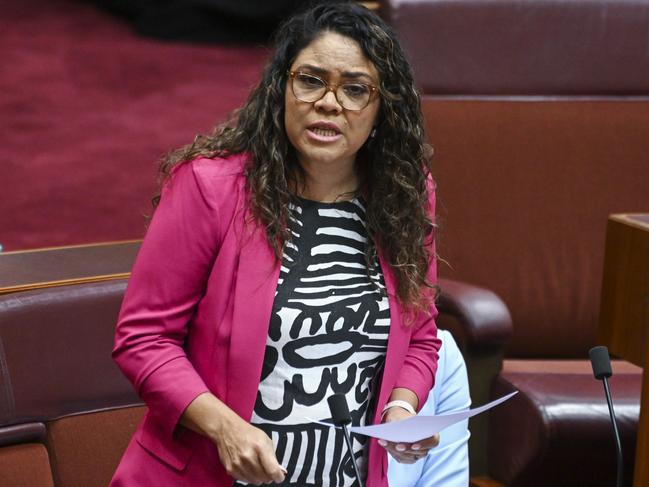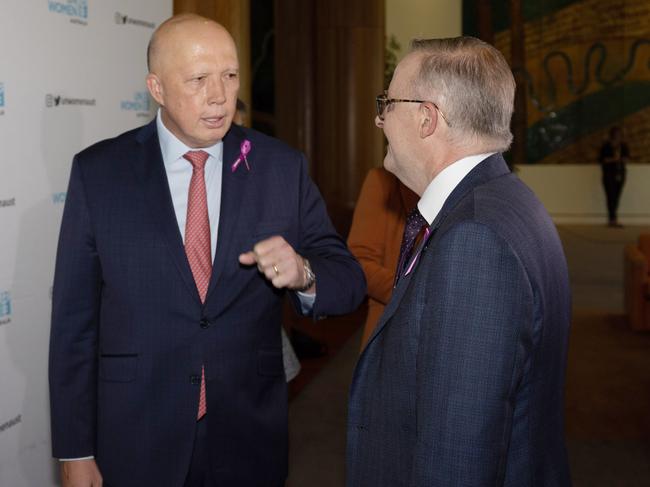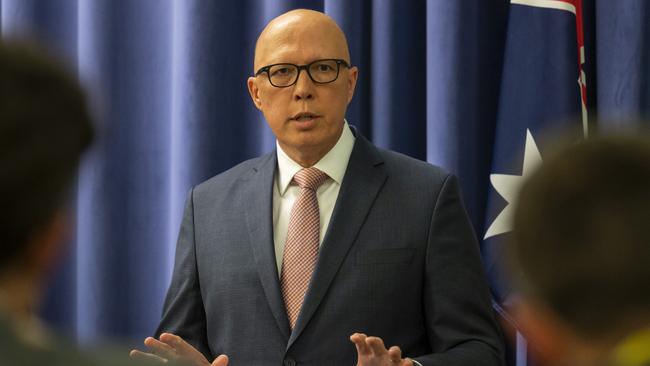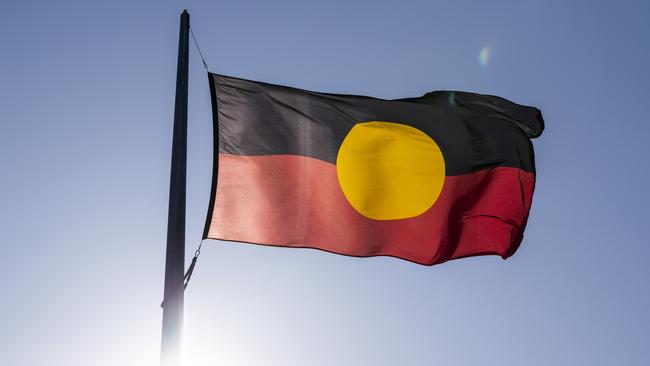Coalition and Labor reach deal on Indigenous Voice to Parliament referendum rules
A deal has been struck between the Coalition and Labor over the updated rules for the Voice to Parliament referendum.
National
Don't miss out on the headlines from National. Followed categories will be added to My News.
Tougher restrictions to prevent “biased” public funding in the lead up to the Voice referendum, equal tax deductible status for both sides of the campaign and the reinstatement of the “yes” and “no” case pamphlet have secured Coalition support for Labor’s reformed voting rules.
The federal government offered multiple concessions to the opposition in return for bipartisan support of its referendum machinery bill, including a guarantee the federal government’s Voice referendum civics educational campaign would be “neutral” and that it cannot indirectly pour taxpayer dollars into “yes” skewing organisations or initiatives.
Labor also promised the “no” campaign groups would receive tax deductible status when they applied, and clarified there could be more than one scrutineer from either side viewing the referendum vote count.
Liberal special minister of state spokeswoman Jane Hume lead the negotiations and thanked the government for engaging with the opposition “to ensure that this Bill in its final form, is in a way that the Opposition can support it”.
But NT Senator Jacinta Price on Wednesday reserved her right to cross the floor and still vote against the machinery bill as her demand for formal yes and no campaigns had not been met.

Ms Price invited a delegation of Indigenous Australians to Parliament to express their opposition to the Voice proposal, which she claimed would only benefit the “elite” members of the community and be another layer of bureaucracy.
The deal between the opposition and the government to pass Labor’s referendum machinery bill was reached on Wednesday morning after months of negotiations.

The Coalition had long backed most parts of the bill, which included measures to stop foreign interference and have transparency around campaign donations, but Opposition leader Peter Dutton had raised three key concerns with Labor’s proposal.
Initially the government had sought to dump the traditional pamphlet mailed to every Australian outlining the “yes” and “no” cases, but Labor conceded early to Coalition demands to reinstate it.
The other two sticking points were a request to delegate formal campaigns and give those groups equal public funding.
Labor declined to move on the funding question, with the Coalition instead shifting to focus on other amendments it felt would make the referendum fairer.
DIVIDED COALITION SPLIT ON VOICE REFERENDUM RULES
The Coalition is poised to relinquish its demand both sides of the Voice referendum campaign receive equal public funding in exchange for other concessions it believes will make the vote fairer.
A committee process to oversee the formulation of a pamphlet outlining the “yes” and “no” cases for voters, as well as assurances around funding for the document were among the issues raised during a flurry of negotiations with Labor late on Tuesday.
The prospect of offering the federal government bipartisan support for its machinery bill, which broadly modernises the referendum process and does not have specific detail about the Voice proposal, has sparked division within the Coalition party room.

Despite internal unhappiness, it is understood a lack of taxpayer funding for the “yes” and “no” campaigns in the bill is no longer a deal-breaker for the Opposition, provided Labor agrees to other amendments to ensure fairness of the process are agreed.
Public funding has not previously been in referendum legislation, so its absence in the bill would not strictly be precedent setting as some disgruntled Coalition MPs had feared.
With a final Senate vote on the bill due as early as Wednesday, a key sticking point between the major parties remains over the spending of public money for the pamphlet outlining the “yes” and “no” cases.
But Labor sources have viewed Opposition leader Peter Dutton’s personal involvement in the ongoing negotiations, which have been largely lead by Special Minister of State Don Farrell and Liberal shadow minister Jane Hume, as a positive sign.
A fierce debate erupted among Liberal and National MPs and Senators on Tuesday morning as the party room was warned Labor could give up negotiating with the Opposition and instead secure support from the Greens.
Multiple Coalition MPs expressed concern they would fail to secure any of the changes they had sought if the government pivoted to the Senate crossbench.
The reinstatement of the pamphlet was an early concession gained by the Coalition, but the government has resolutely refused demands for both campaigns to have formal structure and equal reasonable public funding.

During the Senate debate on the bill, NSW Liberal Senator Andrew Bragg, who is supportive of an Aboriginal and Torres Strait Islander Voice to Parliament, said the Coalition had sought additional changes that were “laudable objectives” to try and ensure Australia had a “clean referendum”.
“In the age of misinformation and disinformation, we don’t want to see the referendum tainted in any way by outside actors, given the deteriorating environment in which we live,” he said.
But he also conceded the Coalition’s demands to have formally designated campaign entities and to then fund those groups was “complicated” due to the varying views in the “yes” side and multiple “no” campaigns that already existed.
Finance Minister Katy Gallagher said it was “pretty extraordinary” the Coalition was considering standing in the way of the machinery bill, which did not contain “the actual question or content” of the Voice vote.





